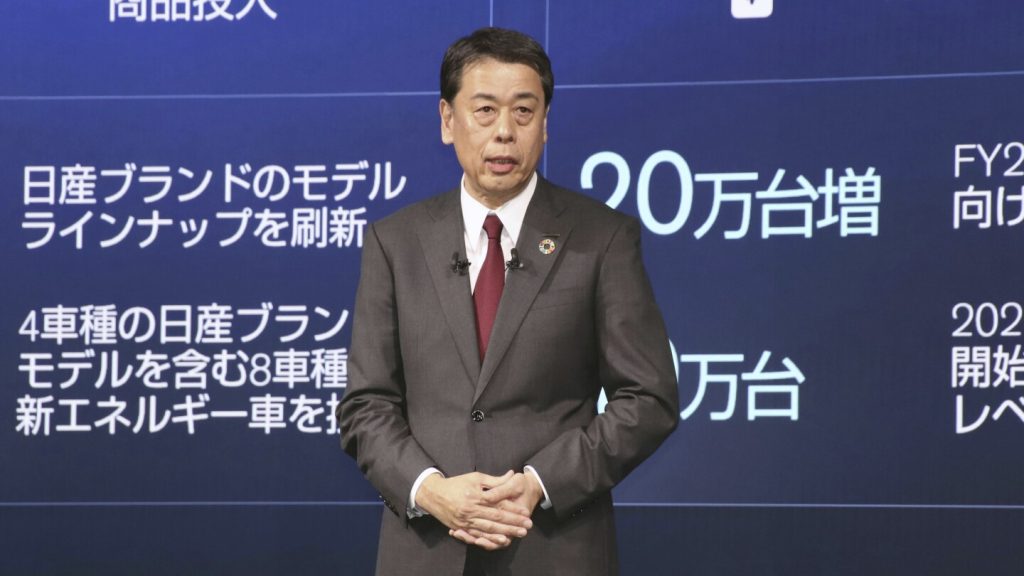Nissan has announced its ambitious business plan called “The Arc” pathway to higher sales by 2030, which aims to expand its electric vehicle lineup, develop more powerful batteries, and cut production costs. The Chief Executive, Makoto Uchida, emphasized the need for continuous change in the auto industry and stated that Nissan must change in order to succeed. The company plans to decrease costs for electric models so they are comparable to gasoline-engine models by fiscal 2030, while global sales are projected to grow by a million vehicles during that period.
As part of its plan, Nissan intends to launch 30 new models over the next three years, with 16 of them being electric vehicles. By fiscal 2026, EVs are expected to account for 40% of its global offerings, increasing to 60% by the end of the decade. To reduce costs, Nissan will collaborate more closely with suppliers from the development stage, incorporate robotics and AI into production methods, and have models sharing components to streamline production.
Nissan plans to leverage its partnerships around the world, including those with Mitsubishi Motors Corp., Dongfeng Nissan in China, and its alliance with Renault. The company is also in discussions with Honda Motor Co. for a potential partnership in electrification and artificial intelligence. This move towards partnerships between rivals is seen as essential to keep up with the rising demand for sustainable transport amid concerns over carbon emissions and sustainability.
Nissan was an early adopter of electric vehicles, introducing the Leaf EV in 2010. However, in recent years, Japanese automakers have fallen behind companies like Tesla and Chinese manufacturers in the EV market. The company aims to increase its offerings of new EVs, plug-ins, and hybrids in all global markets, including the U.S., Europe, Japan, Asia, Australia, and Africa. The CEO emphasized that the Arc plan represents Nissan’s path to the future, showcasing its ability to navigate changing market conditions and drive value and competitiveness.
The plan also includes a focus on innovation in autonomous vehicles to enhance safety on the roads. By introducing new technologies and enhancing its production methods, Nissan aims to stay competitive in the evolving automotive industry. Despite challenges such as chip shortages and disruptions due to the pandemic, Nissan remains optimistic about its future prospects and the impact of The Arc plan on its business. The company’s stock price saw fluctuations in response to the announcement of potential partnerships and the unveiling of the ambitious new business plan.


